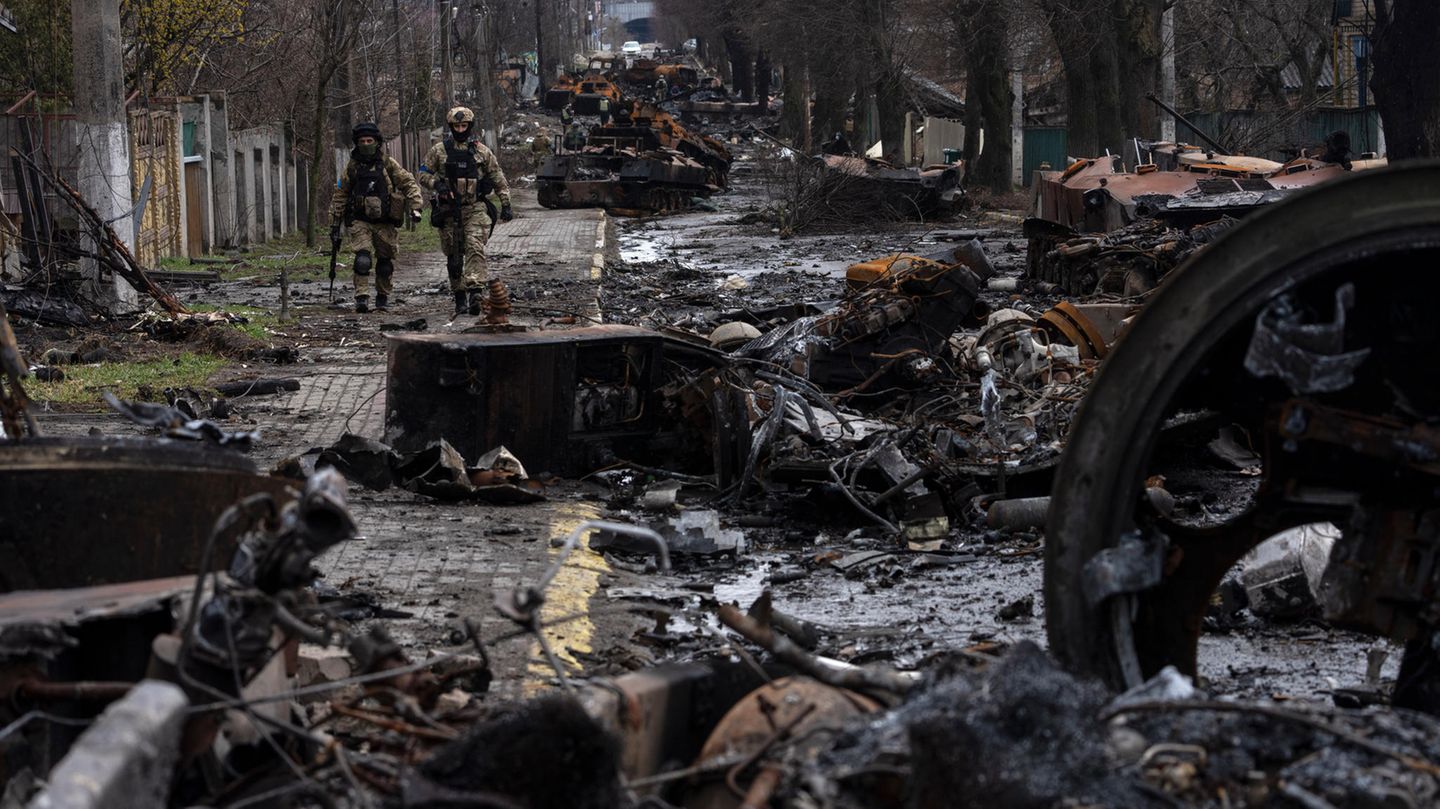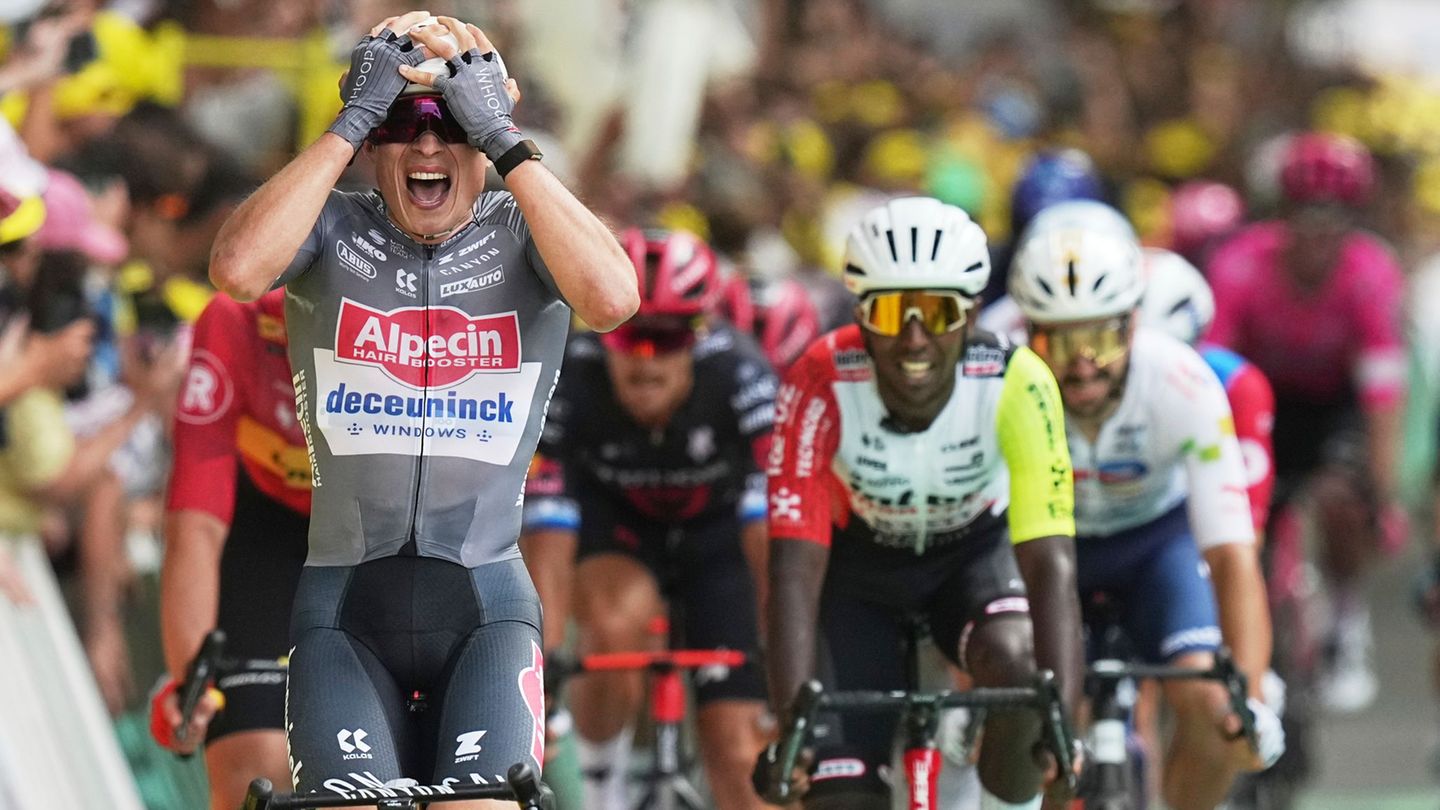On March 2, 2022, Russian forces entered Bucha, a suburb of the Ukrainian capital. By the end of the month, Bucha was no longer just a suburb, but a testament to Russian war crimes in Ukraine. The pictures that went around the world after the liberation by the Ukrainian army are still shocking today. The dead lay between devastated buildings, streets and military vehicles. Surviving witnesses reported mass shootings and torture. According to Ukrainian sources, 461 people were killed.
President Volodymyr Zelenskyj came to Bucha himself a few days after the liberation. The pictures from that time show a head of state who finds it difficult to control himself so as not to burst into tears. On the anniversary of the liberation, Zelenskyy described the massacre as an event that “could not have been imagined in the 21st century”. At the same time, the president spread optimism on his Telegram channel: “(…) the liberation of the Kiev region became a symbol that Ukraine can win this war,” said the head of state.
“I will not forget until the end of my life”
The memories remain anyway. For example, to the relatives who were shot by Russian soldiers on the street, as the bereaved report to the broadcaster “Deutsche Welle”. “My mother was on the phone when she saw the Russians and heard shots. She ran out of fear and made it into the house, but a bullet hit her through the door and pierced her liver. My mother bled to death,” says Tetjana. She herself was in Kiev at the time. She found out about her mother’s death from the neighborhood.
Valentin Didkovsky will probably forever remember how the Russians shot a man off his bicycle on the street. Or the bodies that piled up outside while the residents had to hide in their homes. “You know, I will not forget that until the end of my life,” he tells “ZDF”.
Investigations into the Bucha massacre continue
The Ukrainian public prosecutor’s office counts almost 11,000 war crimes committed by the Russian army in the region around the capital Kiev alone. 700 of them were registered in Bucha. Investigators from the Security Service of Ukraine (SBU) had examined Butscha together with police officers after the liberation. Volunteers also took part.
The investigations are still ongoing. One reason: the perpetrators can hardly be identified, the prosecutors report. “The main goal at this stage of the investigation is to collect testimonies and a full body of evidence. Often, by interrogating Russian prisoners of war, it is possible to establish the identity of one or another war criminal,” said Oleh Tkalenko, deputy chief of the prosecutor’s office in the Kyiv region Deutsche Welle broadcaster.
Nevertheless, many suspects are to be brought to justice this year and sentences obtained. After that, those affected are to be put on an international wanted list so that the criminals can be arrested abroad and extradited to Ukraine.
Germany is also dealing with the processing of the massacre. The Bundestag has campaigned across party lines to hold those responsible accountable. “Today and in the future, it’s all about one thing: justice for the victims and survivors,” said the federal government’s human rights commissioner, Luise Amtsberg (Greens), on Wednesday in a current hour. The greatest weakening of international criminal law is when war crimes go unpunished.
Sources: “”, “”, “”, with material from DPA and AFP
Source: Stern
I have been working in the news industry for over 6 years, first as a reporter and now as an editor. I have covered politics extensively, and my work has appeared in major newspapers and online news outlets around the world. In addition to my writing, I also contribute regularly to 24 Hours World.




